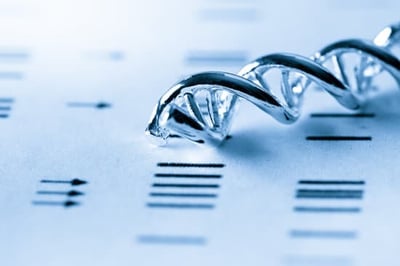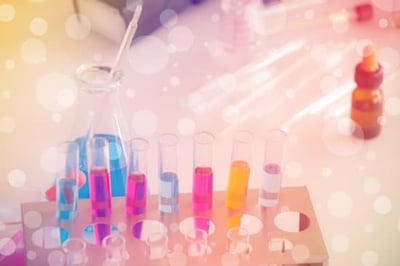
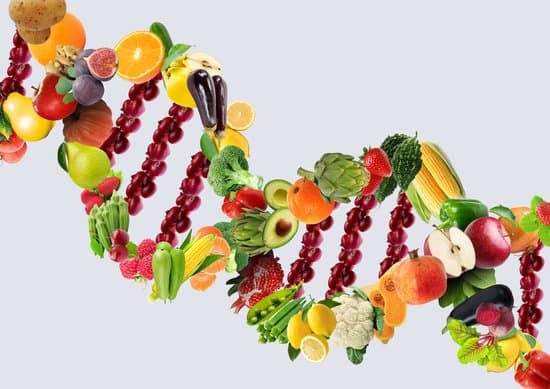
What is Nutrigenomics?
Pharmacogenomics is not the only emerging field to utilize genetic testing to help deliver personalized healthcare as nutrigenomics, which studies the interactions between nutrients and genes, is helping deliver precision nutrition.
“When it comes to healthy eating guidance, a one-size-fits-all approach may not be enough. For example, studies have shown that people metabolize coffee differently, and can experience widely different results on the same weight loss diet,” said the Harvard School of Public Health. “That’s why researchers in the field of precision nutrition are exploring the ways in which differences in genetics, metabolism, the microbiome, and social and environmental factors can influence the type of foods a person should consume.”
Just as Pharmacogenomics (PGx) testing is making medication prescribing more efficient by focusing on how inherited genetic differences affect individual responses to drugs, nutrigenomics, sometimes called nutrigenetics, is helping make precision nutrition a reality.
“Precision medicine brings hope and draws attention towards advances in nutrigenomics research which elucidates the synergistic roles nutrition and genetics play in human health,” says an editorial in Frontiers published in September 2022.
How Nutrigenomics Works
Nutrigenomics is a branch of nutritional science that studies the interaction between nutrients and genes.
“In recent years there has been significant growth in the use of nutrigenomic techniques in nutrition studies. Such techniques include transcriptomics, epigenomics, proteomics, metabolomics, and microbiome analysis,” says Lorraine Brennan, nutrigenomics and precision nutrition section editor of The American Journal of Clinical Nutrition.
Nutrigenomics strives to understand how specific nutrients affect gene expression, leading to changes in health outcomes, and how an individual's genetic makeup influences their response to certain foods and diets.
“In particular the application of metabolomics in nutrition has grown and had a significant impact on nutrition research from clinical studies to epidemiology,” wrote Brennan.
By exploring the relationship between nutrition and genes, nutrigenomics aims to develop personalized nutrition plans based on an individual's genetic profile, allowing for more targeted and effective dietary recommendations.
Nutrigenomics Could be Medical Care Mainstay by 2030
The National Institutes of Health (NIH) Council of Councils approved the concept for a new NIH Common Fund program in 2020 called “Nutrition for Precision Health (NPH), Powered by the All of Us Research Program.”
“Nutrition for Precision Health seeks to move away from population-based nutrition advice in order to provide personalized nutritional guidance based on a deeper understanding of the complex interactions between an individual’s diet, genes, proteins, microbiome, metabolism, environment, and lifestyle,” reported the American Society for Nutrition. “Moreover, the initiative seeks to leverage the latest advances in artificial intelligence to develop algorithms to predict individual responses to specific foods and dietary patterns.”
The NIH says that nutrition plays an integral role in human development and in the prevention and treatment of diseases.
In 2022, the NIH awarded $170 million over five years to clinics and centers across the country for a new study that will develop algorithms to predict individual responses to food and dietary routines. That came on the heels of $1.9 billion invested in the form of grants, contracts, and other funding in 2020.
“We know that nutrition, just like medicine, isn’t one-size-fits-all,” said Holly Nicastro, Ph.D., M.P.H., a coordinator of NPH. “NPH will take into account an individual’s genetics, gut microbes, and other lifestyle, biological, environmental, or social factors to help each individual develop eating recommendations that improve overall health.”
A major challenge in precision nutrition is the inability to combine the many factors that affect how individuals respond to diet into a personalized nutrition regimen. These potential factors include:
- The microbiome–the community of microbes that live in our gut
- Metabolism
- Nutritional status
- Genetics
- The environment
The NPH says that “precision nutrition is taking the personalization trend to the next level, with NIH predicting it will become a mainstay in medical care by 2030.”
Benefits of Nutrigenomics
Some argue that nutrigenomics can revolutionize our approach to nutrition and health, providing a personalized plan that will lead to improved well-being.
Some of the benefits of nutrigenomics include:
- Reduce the Risk of Certain Chronic Diseases: By understanding the link between nutrition and genetic make-up, nutrigenomics can help reduce the risk of certain chronic diseases such as:
o Obesity
o Type 2 diabetes
o Heart disease
- Treat Existing Conditions: Nutrigenomics can help healthcare professionals tailor individual nutrition plans to help patients treat existing conditions.
- New Food Product Development: Nutrigenomics can be used as a guide to develop new functional foods, specifically designed to provide health benefits based on an individual’s genetic profile.
- Improved athletic performances: Athletes can achieve peak performances by adhering to nutritional plans designed according to their specific genetic makeup.
- Improve the Aging Process: Nutrition has a strong impact on epigenetic processes and holds promising roles in human longevity and aging. Nutrigenomics can help develop preventative and interventional strategies to increase human health and longevity.
The goal of precision nutrition is for everyone to have information on what, when, why, and how they can eat to stay healthy. This information would be unique to each person and based on one’s body, lifestyle, and circumstances. The science of precision nutrition is in an early stage, explains Nicastro, but it holds promise for being able to match individuals to the eating pattern that works best for them.
“The plan aims to fundamentally transform nutrition science through research on nutrition, dietary patterns, and involvement of the microbiome, with a focus on precision nutrition as a unifying theme,” Dr. Griffin Rodgers, Director of the National Institute of Diabetes and Digestive and Kidney Diseases and Chair of NIH Nutrition Research Task Force, tells NutritionInsight.
What the Future of Nutrition Could Look Like
CNN, in its article last year on “The Future of Nutrition Advice” asked nutritional experts how nutrition advice will change in the next decade and they thought nutrigenomics would certainly play a role.
“We will have more and better biomarkers and more affordable and accurate nutrigenomics and microbiome tests as well as better computer algorithms that predict your response to food intakes,” said Dr. Frank Hu, professor of nutrition and epidemiology and chair of the Department of Nutrition at the Harvard T.H. Chan School of Public Health. “But these technologies cannot substitute general nutrition principles such as limiting sodium and added sugar and eating more healthy plant foods. In a few years, you may be able to get a more useful response from Alexa if you ask her what you should eat – but like other answers from Alexa, you’ll have to take it with a grain of salt.”
Angela Poole, assistant professor in the division of nutritional sciences at Cornell University’s College of Human Ecology, saw a future blending of technology and personalized nutrition information.
“I think you will receive a custom-tailored grocery list on an app – foods that you want to buy and foods that you want to avoid, based on your blood sugar responses to foods, your level of physical activity, and more,” said Poole.
Subscribe to email updates
Related Articles
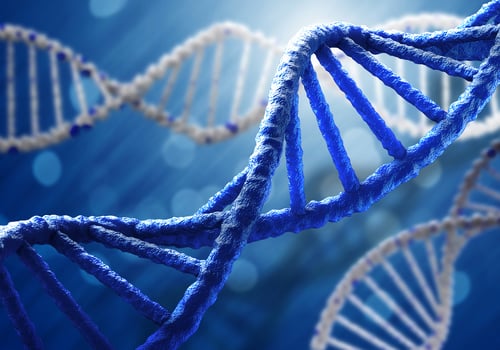
Topics
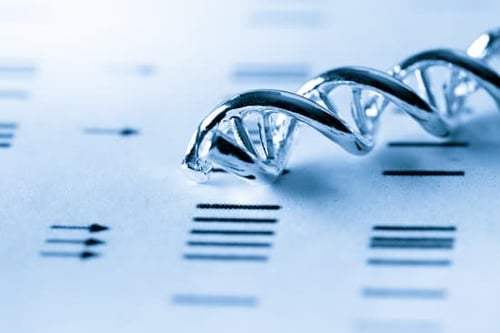
Topics

Topics

